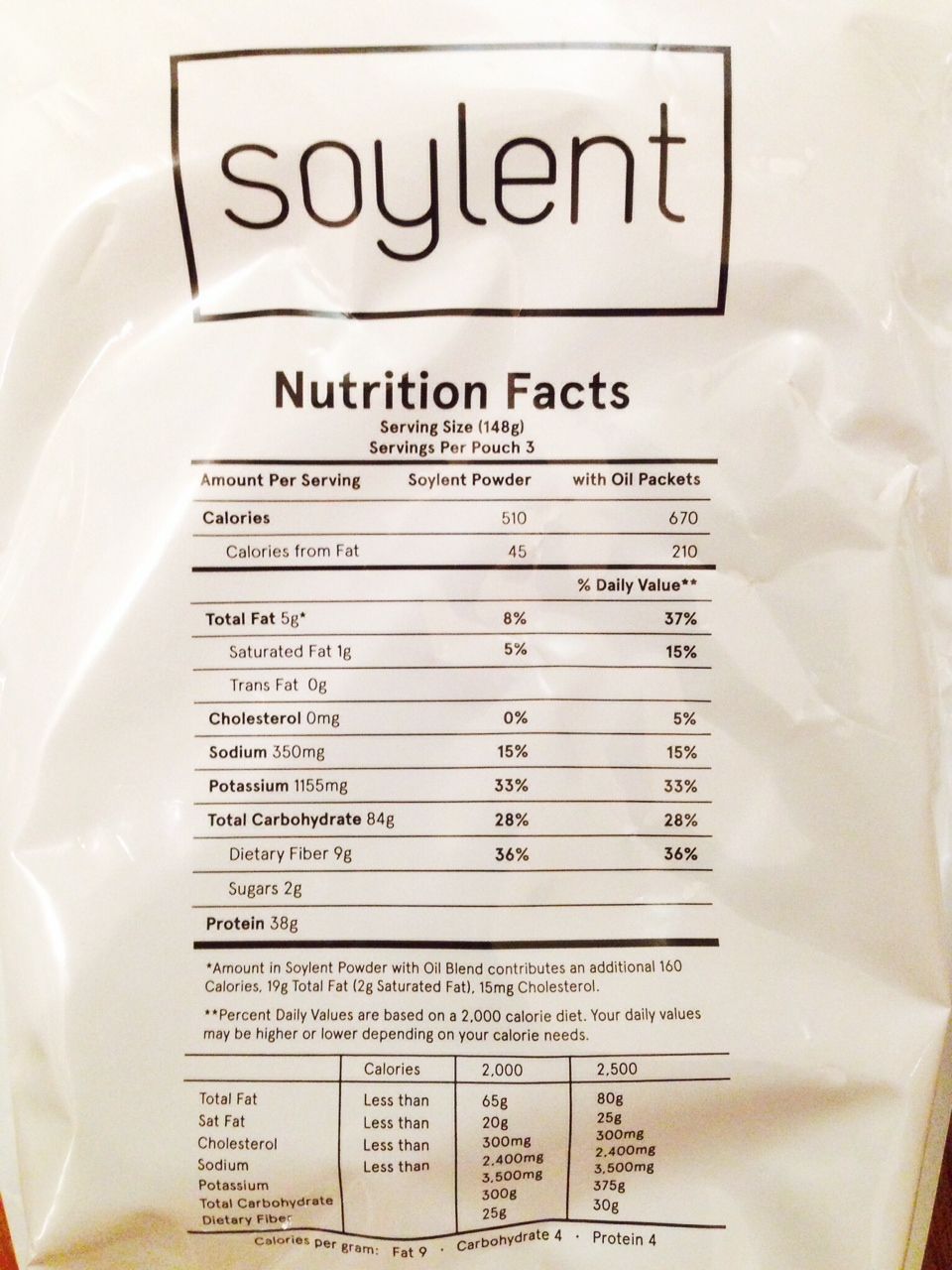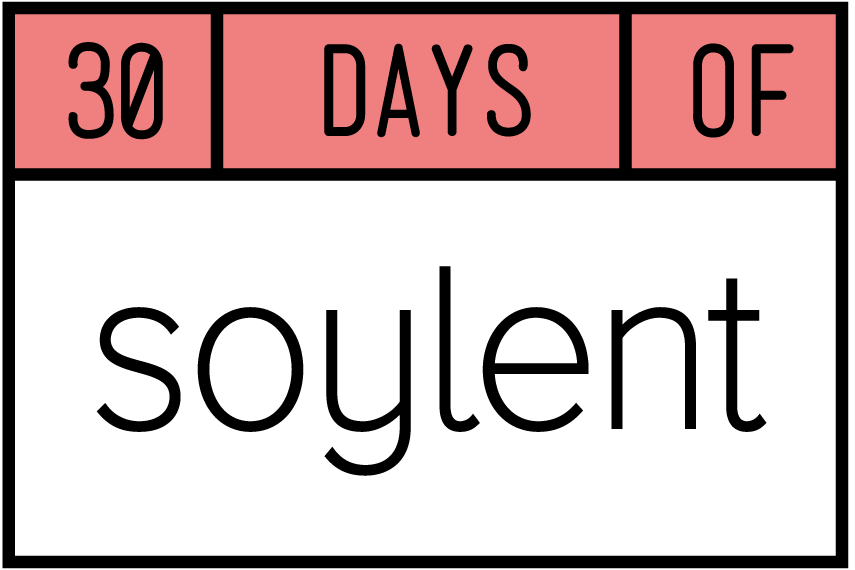DAY 08
A Closer Look at the Label.
Rosa Labs markets Soylent as a “total food replacement powder,” with the intention of replacing food altogether. Their website’s about page states:
“Soylent is a food product designed for use as a staple meal by all adults. Each serving of Soylent provides maximum nutrition with minimum effort.”
The expression “staple meal” interests me here. Many cultures around the world have their own staple meal or crop. Varieties of corn, rice, and potatoes are commonly-consumed items. According to Wikipedia, maize (corn) is the most produced staple food in the world.
But how does the nutrient content of Soylent compare against a diet of traditional food?
How about against the Percentage Daily Values of a standard 2000 calorie diet?
Well, it’s quite confusing to determine because of unclear Nutrition Facts labeling (surprise!). Each daily amount of Soylent is shipped in two parts: a 444g bag labeled “Soylent Powder” and a 2oz bottle labeled “Oil Blend.” The oil blend contains Canola Oil and Fish Oil (along with much of the fat & cholesterol content), and is separated for those with vegan/vegetarian dietary preferences.

The data on the nutrition label is split between two columns. I supposed their intention is to provide accurate and separate information for all customers. Fair enough. But from the picture above, could you tell me how many grams of fat are in the whole bottle of the oil blend? Could you do it without a calculator? (I couldn’t.)
For fun, let’s compare some of the nutritional content of Soylent to an equal amount of maize.
From what I can tell, 144g of Soylent contains ~100% of the daily value (based on a 2000 calorie diet) for each of the following: calories, total fat, potassium, total carbohydrates, dietary fiber, Vitamins A, C, D, E, K, B6, B12, metals like zinc, copper, iron, magnesium, calcium, biotin… etc. The only outliers are protein (114g — personal daily % requirement varies depending on bodyweight, or isn’t required by the FDA), cholesterol (15%), and sodium (45%).
Google tells me that 144g of corn contains:
26% of your daily calories
10%
of total fat
2% of sodium
12% of potassium
35% of total
carbohydrates
40% of dietary fiber
13g of protein
22% of
iron
44% of B6, magnesium
6% Vitamin A
0% Vitamin C, D, calcium
Does this make Soylent the staple of the future?
A manufactured crop specifically designed to support human life at all levels? (Its beige color is reminiscent of the skin color of a mixed-race humanity somewhere in the distant future.) Does this make it more akin to genetically modified foods, which are designed to be bigger, fleshier, seedless, and more nutritious?
Hours slept: 8
Meal times:
8:30AM : 16oz
11:00AM : 12oz
3:00PM : 16oz
8:00PM
: 12oz
Weigh-in : 169.5lbs
Weigh-out: 169lbs
